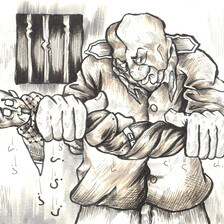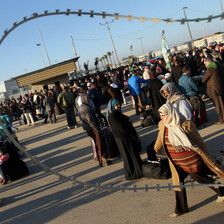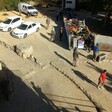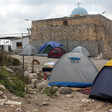Kufr Birim 15 August 2014
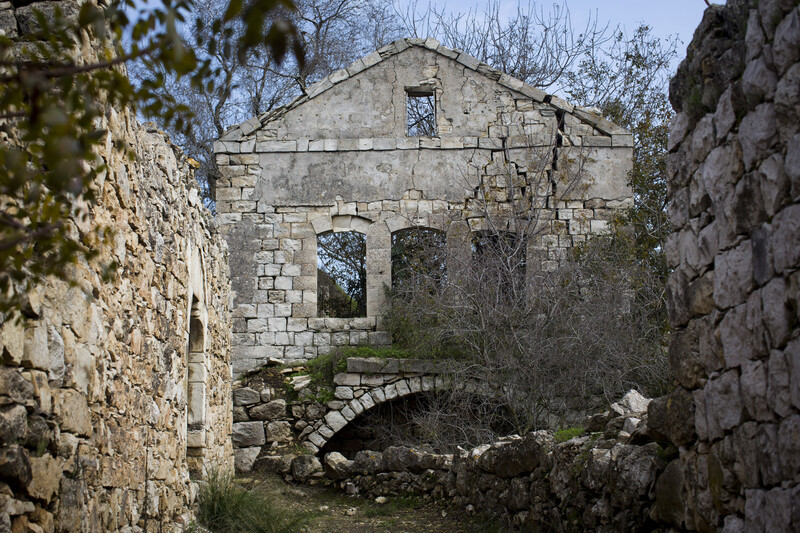
Activists say building new structures in the destroyed village of Kufr Birim is their priority.
ActiveStillsKufr Birim is one of the hundreds of Palestinian villages depopulated by Zionist militas during the Nakba (Arabic for “catastrophe”) — the ethnic cleansing which led to Israel’s foundation in 1948.
Earlier this month, activists held a week-long youth camp in this village. More than seventy young Palestinians living in present-day Israel attended.
The camp featured lectures and tours that teach the village’s Palestinian history, as well as arts and crafts activities and musical and theater performances.
“For 66 years we have been trying to return,” George Ghantous, an organizer of the camp, told The Electronic Intifada.
Harsh winter
Though this is the 25th annual camp, Ghantous said that this year was special. It is the one-year anniversary of when more than a dozen Palestinian youths — descendants of the village’s refugees — returned to the remains of the village.
Despite a harsh winter, which included a heavy snowstorm, and harassment by Israeli authorities, they set up camp and stayed on their ancestral lands.
“Israeli [authorities and companies] come here very often, bringing a lot of different groups, like Birthright groups and tourists, and don’t mention our history here,” Ghantous said.
“We have summer camps to teach about history and work camps to rebuild the [Palestinian] houses. But [Israeli authorities] come and destroy it. Sometimes we have clashes.”
Organized by al-Awda, a group advocating for the rights of Palestinian refugees, activists decided to permanently return to the village in August 2013. In Iqrit, another Palestinian village depopulated in 1948, activists had already returned a year earlier in the summer of 2012.
“Al-Awda is a progressive, leftist group that began back in 1982,” Ghantous said. “For more than thirty years we’ve been working on issues surrounding returning to Kufr Birim.”
In the cases of both Iqrit and Kufr Birim, the majority of refugees were scattered across parts of present-day Israel and eventually took Israeli citizenship. And in both cases, Israel’s military subsequently demolished the villages despite appeals to state’s high court.
Bombed
It wasn’t the first time that the residents of these villages have taken their case to the high court.
The high court’s July 1951 ruling that Iqrit’s refugees must be allowed to return was ignored. Israeli soldiers forced several of the village’s almost uniformly Christian population to watch as they demolished all of their homes with dynamite and other explosives on Christmas Day that year.
Only a small church and the local graveyard were left partially intact.
Kufr Birim’s residents were told by Israel’s high court in 1953 that they would be permitted to return to their homes if the military could not provide a reason to the contrary considered suitable by the court. But Israeli warplanes dropped bombs on the homes and buildings soon afterwards, again leaving only a church and a few small structures standing.
Much of Kufr Birim’s land was turned into a state park and the rest was divided among surrounding Jewish Israeli communities established after 1948.
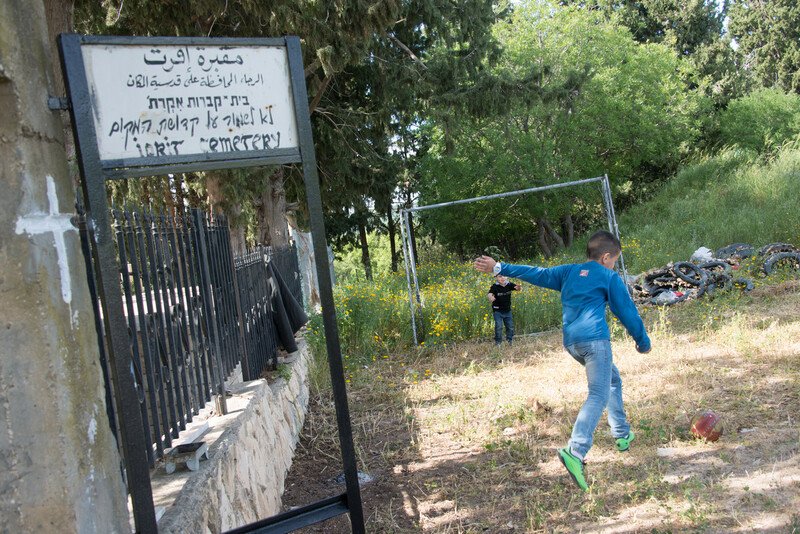
Children play outside the cemetery of the destroyed village of Iqrit in April 2014.
Standing in front the ruins of her grandfather’s home, Waad Ghantous, George’s cousin, spoke to The Electronic Intifada. “This is my grandfather’s house,” she said. “His brother was killed here in 1948. Our family lived in the mountains around Birim [during the Nakba] waiting to come back.”
After Israeli military forces time and again prevented the villagers from returning, her grandparents resettled in al-Jaysh, a nearby Palestinian village. Now a counselor at the camp, Waad Ghantous explained that she was a participant every year while growing up.
“I used to only visit like three or four times a year,” she said, adding that she lives and works in Haifa, a city in present-day Israel. “Now that we’ve returned, I come back several times every month.”
George Ghantous recalled that after returning to Kufr Birim during the summer of 1972 to repair the church and homes, villagers refused to leave. “There were clashes with tanks and soldiers came with many [weapons]. After that we stayed for one year, but the 1973 war made things very hard,” he said.
“The most important thing we do is build [new structures] and maintain ones already here,” he added. “We are trying to make our return and staying here much easier.”
Harassed
The Israel Lands Administration and police have consistently harassed the campers over the last year. A week after an Israeli court rejected their appeal, Israeli authorities demolished several structures in June, including a bathroom and tents, and evicted the activists.
George Ghantous said that they also built a wall on the side of a steep hill “to make it safe for the children,” adding that it was demolished by Israeli bulldozers shortly after its completion.
“Our [annual summer] camp is the axis that we’ve built our social and political life around,” he said.
Local activists told The Electronic Intifada that police recently showed up a week after the summer camp and tried to intimidate them by recording their personal information, including names and identification numbers. Though an Israeli court is considering another appeal, campers and residents say they have no hope for justice for Palestinians in an Israeli court.
“Because [Israeli] authorities have a national park on our land, they are able to monitor us all the time,” George Ghantous said. “They have people working here every day until four or five o’clock, and they have different patrols that come and watch. Some of them try to provoke us.”
Each year the annual summer camp focuses on a particular theme. This year campers were taught their connections to the besieged and bombarded Gaza Strip.
“This year our activities are much less amusing,” George Ghantous said. “It is more educational this year because we feel sad. We also have mixed feelings about resistance and sadness and feeling like we’re unable to do anything for our people [in Gaza].”
“At the same time, we continue our work,” he said, vowing that activists will stay on their land regardless of Israel’s oppressive measures and racist policies.
“We wish to become a front for Palestinian return,” Ghantous added. “We can escalate our struggle at this point … Since we started, we have been wishing that … other refugees will start their own direct actions.”
Patrick O. Strickland is an independent journalist and regular contributor to The Electronic Intifada. His website is www.postrickland.com. Follow him on Twitter: @P_Strickland_.
